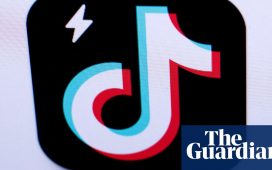With help from John Hendel and Cristiano Lima.
Editor’s Note: This edition of Morning Tech is published weekdays at 10 a.m. POLITICO Pro Technology subscribers hold exclusive early access to the newsletter each morning at 6 a.m. To learn more about POLITICO Pro’s comprehensive policy intelligence coverage, policy tools and services, click here.
Story Continued Below
— Georgia faces fire: An overwhelming chunk of the media industry is banding together to oppose Georgia’s controversial abortion ban, threatening to pull film and TV production out of the state.
— Zuckerberg stays on top: Proposals at Facebook’s annual shareholder meeting to rein in Mark Zuckerberg were rejected.
— Tariffs’ toll on the gig economy: Representatives of Uber, Lyft, Bird and Lime explained how the trade war is hurting their bottom lines.
HELLO ON THIS FLAWLESS FRIDAY AND WELCOME TO MORNING TECH. I’m your host, Alexandra Levine.
Got a news tip? Write me at alevine@politico.com or @Ali_Lev. An event for our calendar? Send details to techcalendar@politicopro.com. Anything else? Full team info below. And don’t forget: add @MorningTech and @PoliticoPro on Twitter.
GEORGIA BOYCOTT THREAT GROWS — A growing list of media companies is threatening to stop production of TV shows and films in Georgia if the state moves forward with implementing one of the strictest anti-abortion laws in the country, slated to go into effect in January 2020. Netflix and Disney led the pack, followed by AT&T’s WarnerMedia, and, most recently, Comcast’s NBCUniversal, all saying publicly they’re considering pulling out. “We fully expect that the heartbeat bills and similar laws in various states will face serious legal challenges and will not go into effect while the process proceeds in court,” NBCUniversal said in a statement on Thursday. “If any of these laws are upheld, it would strongly impact our decision-making on where we produce our content in the future.”
— Similar sentiments: CBS, its subsidiary Showtime, AMC Networks and Viacom have taken softer stances but indicated that they’re tracking the legal developments and might, down the line, re-evaluate their work there should the law take effect.
— The bigger picture: Film and television production has in recent years become a massive industry in Georgia, thanks to tax breaks offered since the 2000s, and the list of companies threatening to pull out of the state represents a large swath of the TV and film industry. It’s a reflection of the polarizing times that corporations, including seemingly staid telecom giants like Comcast and AT&T, are planting their flags on one side of such a divisive issue — and a sign of the economic might that media titans now command following years of consolidation. Still, even the most forceful statements stop short of a full-bore pledge to pull out of Georgia if the courts don’t block the law from taking effect, instead promising to strongly consider leaving the state in that event.
PIC DU JOUR — This giant angry emoji inflated outside Facebook’s annual shareholder meeting in Menlo Park, Calif., on Thursday. (H/t Karl Mondon, a photographer for The Mercury News in Silicon Valley and the Bay Area.) Protesters from consumer and civil rights groups, some holding “break up Facebook” signs, showed up to demand checks on CEO Mark Zuckerberg’s power after months of data privacy scandals and a rising tide of arguments that Facebook has become unaccountably large. Those concerns made it into a number of shareholder proposals to make changes like installing an independent figure instead of Zuckerberg as chairman of the board and diluting his voting power. All, however, were easily beaten back.
— “The outcome of votes at Facebook are never in doubt, due to Mark Zuckerberg’s 10-1 voting power and ability to single-handedly determine every decision put to shareholders,” said Brandi Collins-Dexter, senior campaign director for civil rights group Color of Change. “And that’s exactly the problem: Facebook’s leadership can continue to ignore demands for governance reforms and abdicate responsibility on the problems of safety, privacy, and manipulation the platform has created.”
SCOOT OVER? — Uber and Lyft joined scooter-sharing startups Bird and Lime in Washington on Thursday for a policy discussion on the growing e-scooter market, in which all four now operate globally. The panel, hosted by trade group the Consumer Technology Association, touched on the toll the trade war with China is taking on the companies’ scooter-sharing businesses and supply chains, affecting where and how quickly they can deploy. The majority of these e-scooters are manufactured in mainland China, according to Brenden Dooley, who leads federal policy efforts at Uber, “so there’s 25 percent added on to the price of the scooter,” he said. “It’s a shame for us to have to pay a 25 percent fee and have that going just to get our products here, rather than having those dollars being invested for future projects.”
DESPITE OBJECTIONS, ROBOCALL VOTE WILL HAPPEN — The FCC is standing firm on plans to vote June 6 on Chairman Ajit Pai’s plan to fight robocalls by letting phone companies block them by default, John reports for Pros. The agency is facing down credit unions and other businesses concerned the proposal could hurt their ability to communicate with customers.
— And in related robocall news, standards group the Alliance for Telecommunications Industry Solutions on Thursday named Ericsson subsidiary iconectiv as the “policy administrator” that will lead industry efforts to crack down on illegal robocalls. The company will be responsible for putting into action “SHAKEN/STIR,” the call authentication framework that ensures the caller ID details consumers see are accurate. “‘Call authentication’ is critical for protecting consumers against these calls,” Pai said Thursday. “It will ensure that voice providers are exchanging accurate information about the source of calls traveling across their networks … I appreciate ATIS’s work on this issue and look forward to seeing deployment of SHAKEN/STIR by major carriers this year.”
NOTES FOR NEXT WEEK: STELAR WITNESS LINEUP — Tuesday’s House Energy and Commerce subcommittee hearing on the video marketplace is shaping up to include a mix of witnesses representing DirecTV-owner AT&T, the National Association of Broadcasters, the small cable operators of America’s Communications Association, Public Knowledge and equestrian network Ride TV, multiple industry sources told John on Thursday.
— FIRST IN MT: In another chip in the broadcasters’ favor, Rep. Dave Loebsack (D-Iowa), a Democrat on the subcommittee, wrote a letter to House Energy and Commerce and House Judiciary leaders explaining how the law hits home for his constituents. Viewers in nearly 95 percent of the country’s markets can choose to get their local channels from DIRECTV or DISH, he writes, but the remaining 5 percent in “less populated” and “neglected” markets — including Loebsack’s congressional district in Iowa — do not have a choice, affecting their ability to get local news and information, he says. Read the letter here.
Speaking of Uber, Lyft and the like: “California lawmakers move to protect gig economy works,” via WIRED.
Facebook feed: Two of Mark Zuckerberg’s former staffers have accused the Facebook CEO’s personal security chief of sexual harassment, homophobia and racism, Business Insider reports.
Anti-vax action, or lack thereof: “Facebook Pledged Crackdown on Vaccine Misinformation. Then Not Much Happened,” via The Wall Street Journal.
Toll of the delivery economy: Amazon and other online retailers house warehouses and distribution centers around San Bernardino, Calif., where year-round traffic has brought air pollution. Now, the community is fighting back, Grist reports.
HQ2 411: When Virginia officials pitched Amazon on locating HQ2 in Crystal City, they were sure to advertise that the area would be “an efficient, productive place to lobby from,” Washingtonian reports.
FYI on USMCA: “The Trump administration has taken a step toward ratification of the new North American trade agreement, sending a draft statement to Congress that puts the legislative body on notice the pact could be coming soon,” POLITICO reports.
IQ test: President Trump, who fixates on IQ as a measure of self-worth, points to Apple CEO Tim Cook as a high-IQ leader to emulate, POLITICO reports.
Samsung says: Samsung’s senior vice president of public policy, John Godfrey, on the company’s latest contributions to 5G and use cases from smart homes to smart factories, via the company blog.
ICYMI: “Salesforce instituted a new policy barring retail customers from using its technology to sell semiautomatic weapons,” The Washington Post reports.
Tips, comments, suggestions? We’re all ears: Eric Engleman (eengleman@politico.com, @ericengleman), Kyle Daly (kdaly@politico.com, @dalykyle), Nancy Scola (nscola@politico.com, @nancyscola), Margaret Harding McGill (mmcgill@politico.com, @margarethmcgill), Steven Overly (soverly@politico.com, @stevenoverly), John Hendel (jhendel@politico.com, @JohnHendel), Cristiano Lima (clima@politico.com, @viaCristiano) and Alexandra S. Levine (alevine@politico.com, @Ali_Lev).
TTYL.









